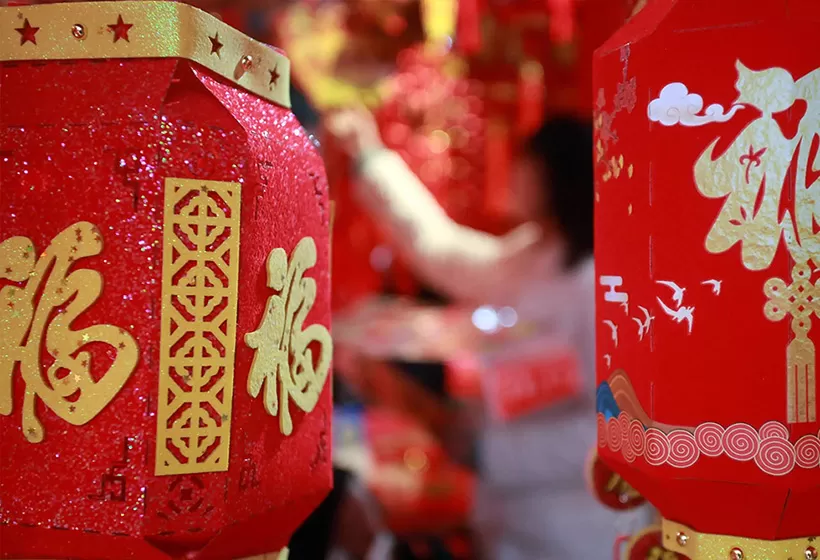Chinese New Year, also called the Spring Festival, is the most important and widely celebrated festival in China. It can also be called “Guonian,” which means the passing of the old year to the new year. There are some common practices of Chinese New Year.
House Cleaning
On the twenty-third or twenty-fourth day of the twelfth lunar month, people have a tradition called “sweeping the dust” or “sweeping the house.” On this day, everyone cleans their homes thoroughly. They wash all kinds of tools, wash bedding and curtains, sweep the courtyard, and brush off dirt and cobwebs (蜘蛛网). There is a happy atmosphere as people celebrate, clean, and get ready for the New Year. The reason behind this tradition is that the word for “Dust” sounds like the word for “Chen” in Chinese. So, by cleaning before the New Year, people symbolically remove the old and bring forth the new. The goal is to sweep away all bad luck and pray for good luck in the coming year.
Prepare New Year’s goods
Different parts of the country have their own special New Year traditions, which can be very different from the north to south. Even though these customs vary from place to place, almost everyone in the country prepares New Year’s goods and gives New Year’s gifts on New Year’s Eve. New Year’s goods include things like food, clothes, decorations, candy, tea, meat, drinks, wine, etc. Buying and giving these items is an important part of celebrating the Spring Festival for Chinese people.
New Year’s Meat
On the twenty-sixth day of the twelfth lunar month, people traditionally prepare meat for the New Year by killing pigs and cutting the meat. The reason why “cutting the meat of the new year” was included in the New Year’s Ballad is that, in traditional farming society where economy are underdeveloped, people could only afford to eat meat during the annual festival, hence it was called “the meat of the new year”. Nowadays, many rural families no longer raise pigs and instead buy meat from the market.
原创编写 版权所有 侵权必究! 每日更新 个性化阅读 英语飙升!
1.1. Which of the following has the closest meaning to the underlined words “brush off”?
A Brush on.
B Make up.
C Clean up.
D Reflect on.
解析:选C。细节理解题。根据本段小标题“House Cleaning”可知,本段主要讲了春节前大扫除;结合划线单词后面的“dirt and cobwebs”可推知,春节前会打扫家里的灰尘,以及清除房子四周的“蜘蛛网”。故选C。
2.2. How do Chinese people view the act of buying and giving New Year’s goods?
A As a minor tradition that is not widely practiced.
B As an unnecessary expense during the holiday season.
C As a way to show their wealth and status.
D As “must-haves” for the Spring Festival.
解析:选D。细节理解题。根据第三段的“Buying and giving these items is an important part of celebrating the Spring Festival for Chinese people.”可知,准备年货和过年送礼几乎是全国各地庆祝春节的“必备品”。故选D。
3.3. What can we know about “cutting the meat of the new year”?
A It was a way to show off wealth.
B It used to be a rare occasion when people could eat meat.
C It was a common practice to use the meat for trading.
D It was a traditional ritual to pray for wealth.
解析:选B。细节理解题。根据第四段的“The reason why ‘cutting the meat of the new year’ was included in the New Year’s Ballad is that, in traditional farming society where economy are underdeveloped, people could only afford to eat meat during the annual festival, hence it was called ‘the meat of the new year’.”可知,因为农耕社会经济不发达,人们只有在一年一度的年节中才能吃到肉,这表明在平常时期,吃肉曾经是很少见的。故选B。
